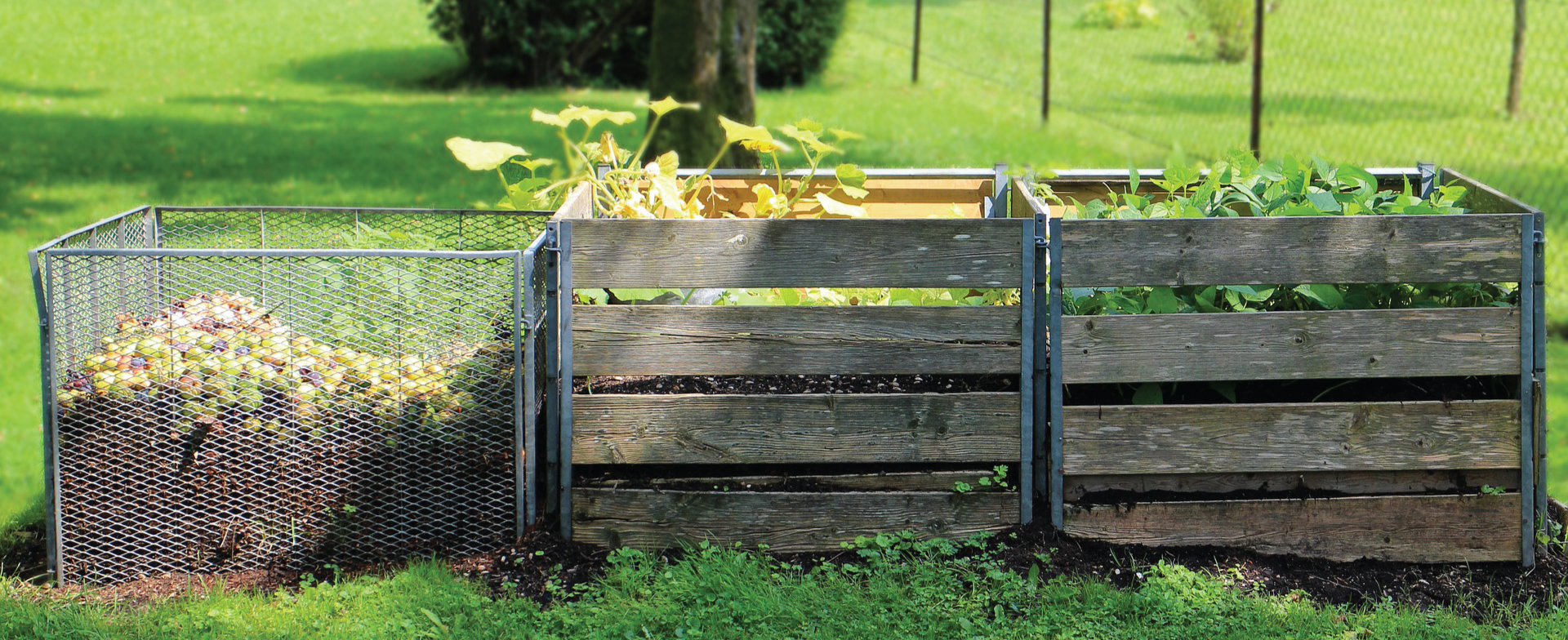Already widespread in Switzerland and quickly growing in France, composting has also grown in popularity in Quebec over the past few years. Compost is a gardener’s “black gold”—a miracle substance that brings plants back to life! In both the country and the city, compost can be made by hand, which helps considerably reduce the amount of garbage that is created and buried.
Say goodbye to your lawn trimmings, food leftovers and organic waste, and say hello to a rich fertilizer that will make your garden one of the best! Composting is the result of natural decomposition, which, thanks to billions of microorganisms, transforms waste headed for the dump into a better fertilizer than any other available on the market. About 40% of our green or recyclable household waste can be composted.
Whether they’re trying out a new trend or have increased their environmental consciousness, more and more Quebecers are interested in turning their table scraps into this potent fertilizer. In fact, this new way of transforming organic waste has a host of advantages for both gardens and the environment. Many see composting as an important step in protecting the environment, as it improves the quality of soil, helps it retain moisture and protects it from wind and water erosion.
The people’s compost
Easy, when living in an apartment? An increasing number of Montreal boroughs are pushing the concept by making composting a municipal priority. In fact, the Coderre administration has plans to supply 500 000 compost bins to residents of buildings with fewer than nine apartments, and to collect garbage in the whole city just once weekly, before 2019. Going from two garbage pick-ups per week to one will make space for a weekly compost pick-up on the island, an initiative started in 2008 by the Plateau-Mont-Royal and Rosemont-Petite-Patrie boroughs.
Layers of waste
To successfully make compost on your balcony or in your yard, you will need two types of waste. In your compost bin, alternate layers of “green” waste that produces nitrogen, like fruit and vegetable peels, grass, green leaves and pits, and layers of “brown” waste that produces carbon, such as dry matter, wood chips, branches, straw, wilted flowers, and such.
Green waste is generally humid, so it decomposes faster than brown waste. By layering them, you keep the temperature in your bin stable, ensuring good compost and preventing unwanted odours. Also, to keep the mixture from rotting during the process, be sure that the waste you add to your bins is moist, but never wet. For example, you can compost pasta leftovers, but never throw in the tomato sauce!
No rats in my yard!
You may have heard the occasional discouraging—and highly unappetizing—horror story about compost gone wrong. Although most of the insects in your compost bin are necessary to the process, some unwanted species might join the mix. To avoid a rodent or pest infestation, never add meat, fish or bread to your bin.
Also, your compost bin shouldn’t smell bad. If you do notice an unpleasant stink, it’s probably because you added elements you shouldn’t, or because the mix is too wet. To make the unwanted smell disappear, add brown waste to the bin and mix it in well.
How long before you can use your compost? Your natural fertilizer will be ready in one to twelve months, depending on your materials. In fact, the timing depends on the type of compost bin you use, as well as the organic waste you put in it. Usually, the process takes between six months and a year when using a plastic or wooden bin that is attached to the ground. On the other hand, rotating composters work much faster and produce usable compost after only four to six weeks. To speed up the process even more, try vermicomposting, which involves small worms that work hard to munch your leftovers in under a month!
